Home security systems comprise cameras, alarms, or a mixture of both.
Home security camera systems are used for visual surveillance as well as deterrence.
Like cameras, home security alarm systems are activated when motion is detected in certain zones or when the doors/windows are opened at pre-set times. Home security alarm systems are monitored or unmonitored.
Keep reading to learn the difference between monitored vs unmonitored security systems to decide which offers the best security for your home.
What Does It Mean if an Alarm is Monitored?
A monitored alarm is connected to a call center or a centralized system and is monitored by a home security provider. If the alarm is activated, both the homeowner and the security provider are notified.
Monitored alarms don’t usually refer to home security cameras.
Most monitored alarms are triggered when the front door is opened or when motion is detected inside the property.
When the alarm is triggered, the security provider receives an alert. The company assesses the situation and notifies authorities if necessary.
Typically, the third-party assesses the situation by contacting the homeowner to see if a false alarm has been triggered by a pet, a known visitor, or something falling over in the property. If the homeowner cannot be reached, the police are called.
What is an Unmonitored System?
An unmonitored security system is an alarm system that isn’t connected to a home security provider. If the alarm is activated, only the homeowner and the people on the property are notified via the siren or a push notification.
Unmonitored security systems might also refer to security cameras, which are rarely monitored by a third party.
Are Monitored Security Systems Worth It?
Most home security cameras offer the same benefits of a monitored system without the extra cost of paying for a third-party company.
With a home security camera like AlfredCamera, homeowners can:
- Receive push notifications in real time when someone enters the motion detection zone
- Watch live footage of the action to assess the situation
- Immediately contact the authorities, if needed
Therefore, paying a company to assess the situation on the homeowner’s behalf might be unnecessary and inefficient.
This is particularly the case if the third party “assesses the situation” by simply calling the homeowner.
If no response is received or the homeowner is unaware of anyone on the property who could trigger the alarm, they will call the police on the homeowner’s behalf.
Create Detection Zones on AlfredCamera
With Alfred Premium, AlfredCamera users can customize their home security cameras to create smart detection zones. Only movement detected inside the allocated area triggers motion detection alerts and recording.
Any motion that occurs outside the detection zones is ignored.
This prevents false alarms and ensures users get more focused notifications about detected actions on a property. Detection zones are well suited to back doors, porches, driveways, or garage entrances.
Get to know how Alfred Premium levels up your home security.
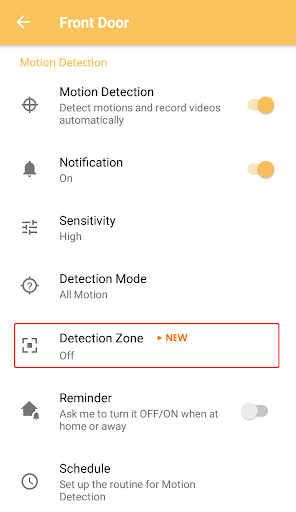
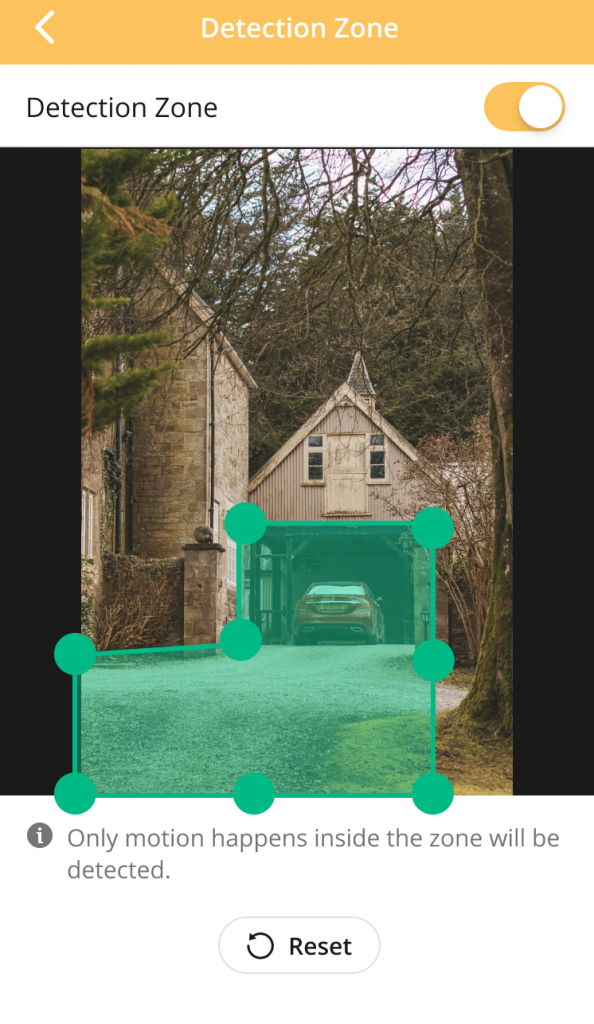
What are the Advantages of a Monitored Security System?
While not everyone will find monitoring necessary, a monitored security system has its benefits. Advantages include:
- Automatically sounding a loud siren when the alarm is triggered
- Ensuring the property is monitored 24/7
- Reducing responsibility on homeowners
What are the Disadvantages of a Monitored Security System?
Monitored security systems also have disadvantages, including:
- Inefficiency, adding an extra layer of communication before the authorities are called
- Easily triggered by false alarms
- Minimizing the homeowner’s control over home security
What are the Advantages of an Unmonitored Security System?
An unmonitored security system, like a home security camera, has other benefits:
- Cheaper, more affordable solution
- Includes additional features (like detection zones, siren activation, trust circles, motion schedules, etc.)
- Cameras can be used for other reasons (like as a Pet Cam or Baby Monitor)
Never miss an alert with AlfredCamera’s Trust Circle
Security itself needs securing. With AlfredCamera’s exclusive Trust Circle feature, users easily share access to camera devices with friends and family, without compromising passwords.
Providing all occupants of the home with private access means more eyes to monitor the space.
Get started with AlfredCamera for free.
What are the Disadvantages of an Unmonitored Security System?
The disadvantages of an unmonitored security system include:
- Only as secure as the setup
- Not monitored by a third party (but can be monitored by several users, including the homeowner and trusted family, friends, or neighbors)
Are Alarms Better Than Cameras?
More homes have cameras installed on a property vs an alarm system. Statistics show that 51 million households have a video surveillance system, whereas only 39 million have an alarm installed.
Research also shows that burglars target properties without home security cameras and are deterred by homes with cameras installed. Alarm systems are not always as visible as security cameras.
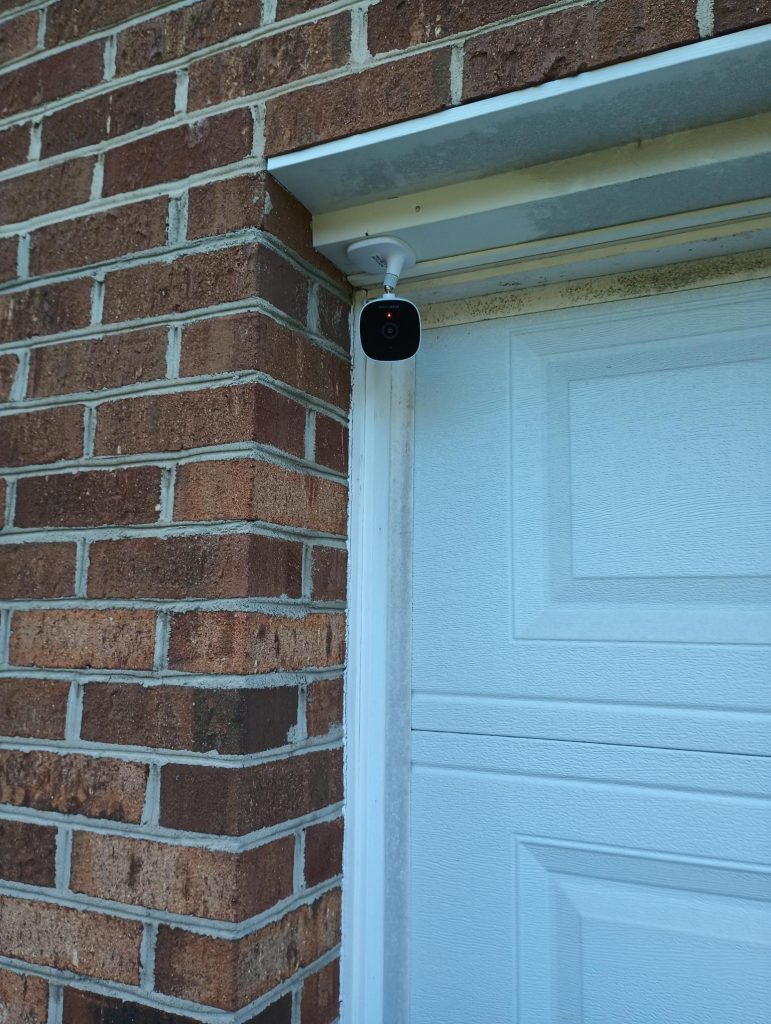
Cameras are not only preventative as deterrants, but capture evidence necessary to prosecution in the event of a theft, making them more advantageous than an alarm system.
Many home security cameras (like AlfredCamera) offer a built-in siren in addition to live visual surveillance, recorded either continuously or using motion detection.
Set up motion detection schedules with AlfredCamera
With Alfred Premium, AlfredCamera users set up schedules for motion detection on their property.
The Motion Detection Schedule feature allows users to turn on motion detection at certain times of the day or night. It’s a great way to get more relevant surveillance and push notifications.
Automatically enable motion detection through a schedule when everyone leaves the property for work or school (at 8am) and disable it after returning home (at 6pm), then have it come enabled again as the household goes to bed (at 9pm).
Curious about Premium? Discover more about how Alfred Premium can upgrade your DIY home security system.
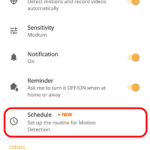
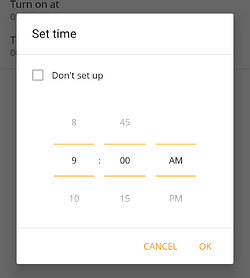
Conclusion
Monitored vs unmonitored security systems offer different benefits to users.
Installing home security cameras on a property is a modern way to protect a home, providing personalized control over home security, with detection zones and easily customizable schedules.
Cameras also make home security more efficient, removing the “middleman” in between.
However, monitored security systems and alarms are beneficial for certain properties, like vacant homes or homeowners with inflexible work schedules.
